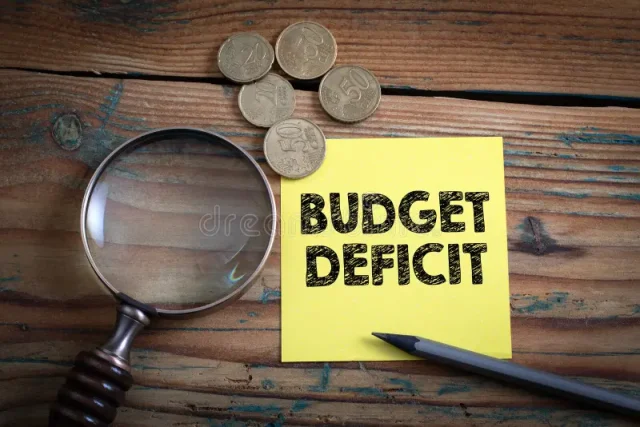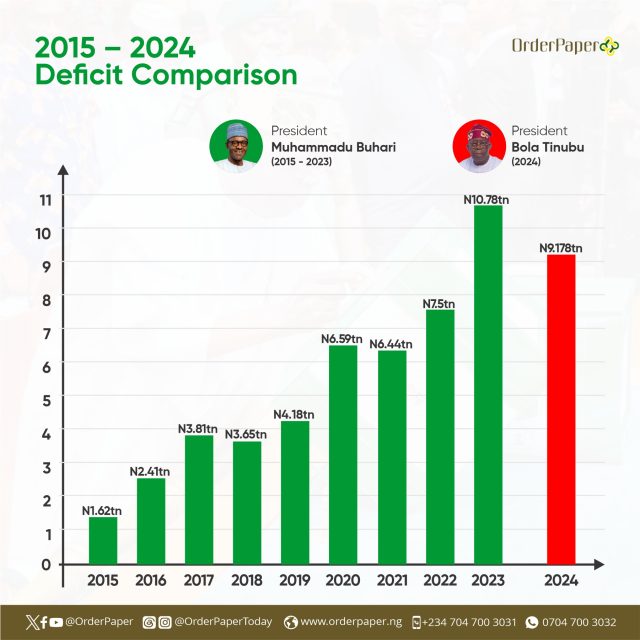President Tinubu in the 2024 appropriation bill signed into law followed the tradition of his predecessor with a budget deficit of N9.178tn

A Budget typically comprises 2 main items. The revenue (income) and the expenditure (how the income is to be disbursed and spent majorly as a capital project or a recurrent project).
A budget deficit occurs when one’s expenditure is more than the revenue. That is, you plan to spend more than the earnings.
In government spending, the fiscal deficit is not just the difference between the government’s total revenue and expenditure. it signals how much money the government will likely borrow during the fiscal year or raise from asset sales to fund its planned expenditure.
Taking a cursory look at the 2024 Budget, President Bola Tinubu’s first budget as President, we see a revenue estimate of NGN19.598 tn.
Expenditure is given at NGN28.777 tn leaving a budget deficit of NGN9.178 tn.
This is not a new phenomenon in Nigeria’s budget. A look at the budgetary allocations in the Muhammadu Buhari administration reveals that President Tinubu is continuing with his predecessors’ tradition of budget deficits.
A review of Nigeria’s fiscal data showed that not only did the government operate under growing budget deficits, but most of the deficits were also funded through local and external borrowings.
The total budget deficit for the 2015, 2016, 2017, 2018, 2019, 2020, 2021, 2022, and 2023 fiscal years under President Buhari was N47.43 trillion.
In Q3 and Q4 of 2015, total deficit financing amounted to N841.48bn, it rose to N2.41tn in 2016, N3.81tn in 2017, N3.65tn in 2018, N4.18tn in 2019, N6.59tn in 2020, N6.44tn in 2021.
Further checks show that showed that deficits in the annual budgets, including supplementary budgets, rose to N10.78 trillion in 2023, from N1.62 trillion in 2015.
There is a need to keep the deficit under three percent of GDP which is the stipulated limit for a federal fiscal deficit as stated by the Fiscal Responsibility Act, 2007.
The country’s fiscal deficit to the GDP ratio had risen from 1.69 percent in 2015 to 2.37 percent in 2016. It increased to 2.85 percent in 2018, and 2.92 percent of GDP in 2019. The 10.78tn fiscal deficit of 2023 was 4.78% of the 225.51tn GDP.
Will President Tinubu continue this tradition of fiscal deficit or push to increase revenue while cutting down on expenditure?

David Oputah
Oputah David M is a Bloomberg-trained Journalist with a diversified experience in online journalism and newsroom management. He is a 2023 MTN Media Innovation fellow!



